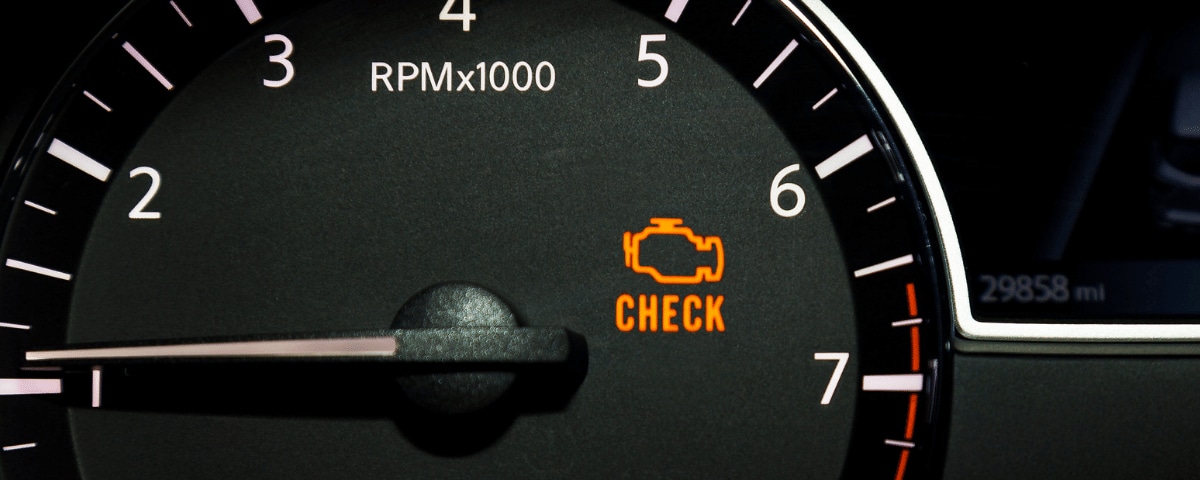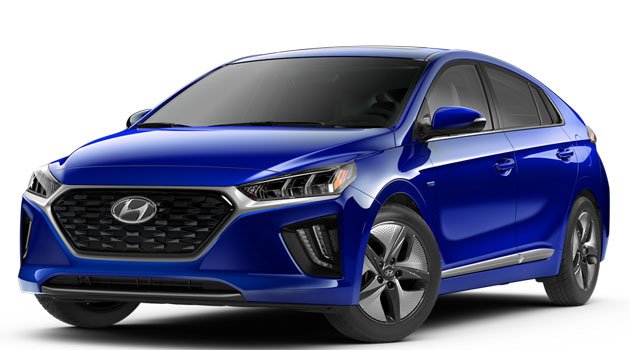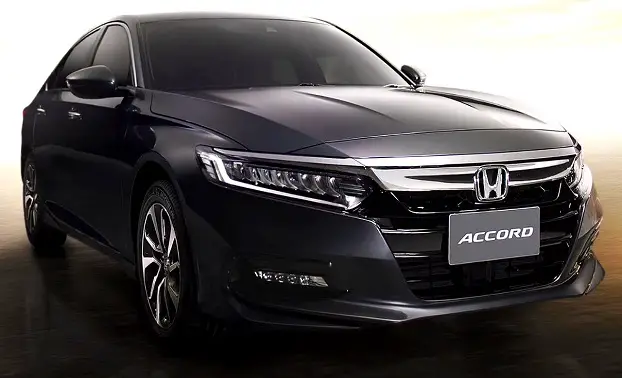Common Reasons For nissan check engine light
If your Nissan check engine light flashes, it needs emergency service. A flashing light signals a serious issue that could damage the vehicle if ignored.
This flashing light signifies a precise engine misfire that allows unburned gasoline to enter the exhaust system. It can quickly raise the catalytic converter’s temperature, causing expensive damage. Do spark plugs trigger the check engine light?
A bad, aged, or dirty spark plug might misfire the engine. Call Crown Nissan of Greenville at 8647540067 if your check engine light is glowing. If overlooked or driven, this can spread to the spark plug wires, catalytic converter, or ignition coils, resulting in a costly repair.
Not sure why your nissan check engine light is on? Usually, this light will come on when your car needs to be serviced or when there is a problem with your engine.
Here, North Freeway nissan tells you why the check engine light on your nissan Elantra or nissan Sonata might come on and what you can do to fix it. And don’t forget that you can always make an appointment with us near Houston to fix any problems that come up.
nissan Check Engine Light

If the check engine light on your nissan starts flashing, it means that something is wrong and needs to be fixed right away. You should bring your nissan in as soon as possible.
A flashing light means that the problem is real and, if not fixed quickly, could cause serious damage to the car.
This blinking light usually means that the engine has a serious misfire, which lets unburned fuel go into the exhaust system.
There, it can quickly raise the temperature of the catalytic converter to a point where it is likely to be damaged and need an expensive repair.
Some owners ask if the check engine light flashes because of the spark plugs. This is a very likely reason.
Misfiring can be caused by a bad, old, or dirty spark plug. If you don’t fix the problem or keep driving, it can spread to the spark plug wires, the catalytic converter, or the ignition coils, which can be very expensive to fix.
Also Read: Why is My Hyundai Check Engine Light On?
nissan Check Engine Light Codes
When the check engine light comes on, it can be scary to see that little light on your car’s dashboard light up all of a sudden. However, you shouldn’t run away in fear right away.
If you hear the term “diagnostic trouble codes” (DTC), it just means “check engine light codes.”
These are computer codes for cars that are stored by the ECM, which is also called the “on-board computer diagnostic system” (OBD) in your car.
There are a lot of different things your check engine light can mean. Even though that sounds hard, if you take the time to do basic diagnostics, you’ll learn useful things about your car and be able to use the Check Engine Light as it was meant to be used: as a guide.
Unfortunately, the Check Engine Light does not always come with clear and helpful signs that something is wrong with a car. Since there are hundreds of possible OBD codes, there are also hundreds of possible reasons why the light is on.
- O2 Sensor
- Transmission issues
- Fuel and air metering systems problems
- Ignition system goes wrong.
- Used battery
- Bad Spark Plugs
- Emissions controls issues
- Computer output circuit issues
- Gas Cap is Loose or Missing
Because of this, someone who doesn’t know much about cars shouldn’t assume they know what a code means. Call Nalley nissan at 770-999-0443 or schedule your service for the check engine light online today. If the engine light stays on because of a persistent problem, you could do more damage to your car if you don’t fix it right away. If your check engine light comes on, you should have a certified nissan mechanic look at it right away.
What Does the Light That Says “Check Engine” Mean?
The check engine light on your nissan is one of the most commonly misunderstood lights or indicators. The check engine light is part of the onboard diagnostics system and can show up in a few different ways. It could say “Check Engine,” it could be a picture of an engine, or it could be both.
This light can be either yellow or red, and it is part of your vehicle’s diagnostics system. Since the 1980s, onboard computers have been controlling and monitoring vehicle performance more and more. They can do a lot for your nissan.
Some of these are controlling the speed of the engine, the timing of the ignition, shifting automatic transmissions, and setting up stability control, just to name a few.
So, the check engine light can mean a number of different things. It could be as simple as a loose gas cap or as serious as a knocking engine.
If your nissan’s “Check Engine” light is on, call Nalley nissan. Our nissan service department can help you figure out what code is making your check engine light come on or why your check engine light is flashing. Get in touch with Nalley nissan now!
How far can you go when the check engine light is on?
The safest thing to do is figure out what the code means and then plan your strategy based on that. Since each check engine code is different in how serious it is, it is hard to say how many miles you can drive with the warning light on.
If your check engine light is flashing, you should pull over and call Nalley nissan. They can tell you if your car is safe to drive or if you should call a tow truck. It could be a bad sensor or that the plug wires need to be changed.
nissan Check Engine Light Blinking
There are a lot of things that could cause the Check Engine Light to come on, but after years of providing Check Engine Light Diagnosis Service, we know that there are a few common ones, like a loose gas cap.
A Check Engine Light can also be caused by a problem with the fuel injection system, a dirty mass airflow sensor, a faulty head gasket, a damaged oxygen sensor, a faulty emissions control part, or bad spark plugs, just to name a few.
No matter what is causing the Check Engine Light, we have the nissan Certified Technicians and the certified service protocol to find the problem and fix it to factory standards.
When this happens, the Check Engine Light turns off, and you know that the problem with your nissan has been fixed and you can leave the service centre.
Every nissan was made with a high-tech performance monitoring system that includes a computer and a set of sensors placed in key places around the car to track its most important systems.
The sensors are always looking at the environment and sending information to the electronic control unit. If the electronic control unit sees that the data is not within factory limits, the Check Engine Light will come on to let you know there is a problem.
But that’s the problem with the Check Engine Light: it won’t tell you what’s wrong or how to fix it.
That’s where we come in. Nalley nissan has a service called “Check Engine Light Diagnosis Service” that finds out what’s wrong.
nissan Check Engine Light Service
What do you do when you’re driving your nissan and all of a sudden a yellow light that says “Check Engine” comes on? If you are like most nissan owners, your heart sinks a little because you don’t know what that light means or what you should do. Just as stressful can be the fear of the unknown or the cost of the unknown.
But take a deep breath and remember that just because the light is on doesn’t mean you have to pull over to the side of the road and call a tow truck. Instead, you should get your nissan checked out as soon as you can.
If you ignore that warning, it could hurt expensive engine parts in a big way.
When your nissan’s onboard computer, the electronic control module (ECM), finds a problem in the electronic control system that it can’t fix, a computer turns on your check engine light.
This amber or yellow light usually says “Check engine” or “Service engine soon.” Sometimes, the light is just a picture of an engine or the word “check” next to a picture of an engine.
When the light comes on, the ECM stores a “trouble code” in its memory that tells what the problem is, whether it’s a sensor or a broken part of the engine.
Our nissan auto repair technicians at Nalley nissan use an electronic scan tool to read this code. If you want to do it yourself, there are also a number of code readers that aren’t too expensive and are made for that.
Even though this code will tell you what the problem is, only a trained professional can really figure out what is wrong and fix it.
Reasons Why nissan’s Check Engine Light Comes On
Has your nissan Elantra, Accent, Sonata, Kona, or Santa Fe’s check engine light come on? When you have never seen an engine warning before, it can be scary to see it pop up on your dashboard.
Here are the most common reasons why a check engine light comes on.
Loose Gas Cap: The gas cap on your car is loose, broken, or missing. Problems with the gas cap can lower fuel pressure and let fuel vapours escape. This makes the car use more gas and put out more harmful emissions.
Faulty Catalytic Converter: Your catalytic converter can get clogged up over time, especially in cars that have been driven a lot. The carbon monoxide is taken out of the air by the catalytic converter, which is an important part of the emissions system.
Spark Plugs or Spark Plug Wires Have Gone Bad: After a while, you will need to get new spark plugs or spark plug wires. Your spark plugs make a hot spark that ignites the mixture of air and fuel in the cylinder.
Faulty Oxygen Sensor: If your oxygen sensor has been exposed to hot exhaust gas for a long time, it may need to be replaced. The oxygen sensor gives the ECU important information about the mixture of air and fuel. If your car’s oxygen sensor is broken, the computer might give the engine too much or too little fuel.
Faulty Mass Air Flow Sensor: If the Mass Air Flow (MAF) sensor is exposed to dirty or particle-rich air, it could stop working. Like the oxygen sensors, the MAF sensor measures how much air is going into the engine. This helps make sure that the right amount of air and fuel is going into the engine.
What to do if the “Check Engine” light comes on in your nissan
When your nissan’s check engine light comes on, no matter what’s going on, we always recommend stopping by our service centre so one of our skilled technicians can figure out what’s wrong and fix your car. Our service technicians have the most up-to-date diagnostic tools and can quickly read nissan OBD-II Trouble Codes.
The way your nissan’s check engine light acts, on the other hand, can help you figure out what might be wrong and how bad it is. To help you figure out what to do next, we’ve written out some possible situations:
The check engine light only comes on when these things happen: If your check engine light only comes on sometimes, pay attention to any changes in how your car runs when the light is on. If you do notice a change, try not to drive your car as much as possible until you can get it fixed.
The engine check light is always on: The diagnostic system in your car has found that something is wrong and needs to be fixed. Even if your car seems to be working fine, it’s best to have it checked out as soon as possible to avoid more problems.
The check engine light is on and the car isn’t running as well as it should: If your car’s performance keeps getting worse even though the check engine light is on, it may have gone into a “limp-mode” to prevent further damage.
The check engine light is blinking while driving: This is different from the first situation, in which the light sometimes flickered. If your check engine light is blinking all the time, it usually means there is a major problem with your car and you should pull over as soon as it is safe to do so..

